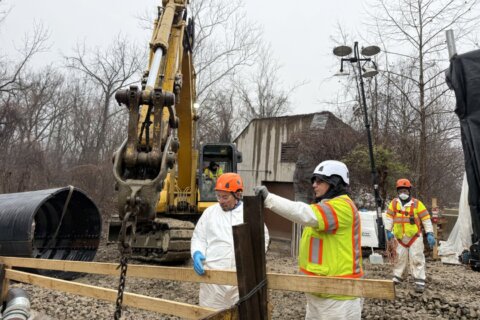WASHINGTON — Nearly every one of Montgomery County’s uniformed police officers now wears a body camera. Those cameras capture an average of 1,350 recordings a day — if the officers flip the switch.
“For the past year… it’s been a struggle to remember to turn it on,” said Montgomery County Police Chief Tom Manger.
He and some of his top aides briefed members of the County Council’s Public Safety Committee on the progress – and the costs – of the department’s body camera program. The committee chair is impressed.
“We’re in a time where the public trust in the police is not at its highest point,” said Marc Elrich. “Having these cameras increases the public trust.”
The program costs the department about $1 million a year, even though the cameras themselves run only about $80 each. The rest of the money goes to licensing, encryption, redacting videos that are made public, and the biggest and perhaps most overlooked factor: storage.
“Storage is the elephant in the room. We’re storing about four terabits a month right now. [And] I’d expect storage to increase,” said Elrich.
The department is currently storing a total of about 63 terabits of video, since current policy mandates that every recording be preserved for at least seven months.
“I’m hoping we can get more clarity on how long we have to keep records. For 90 percent of the stops they do, holding the (videos) for seven months is probably excessive,” he said.
Elrich is encouraged by the department’s belief that storage costs will come down over the five-year run of the current hardware contract. But another big cost comes when members of the public request videos. Every person who is caught on camera but not part of the incident must be redacted in what’s now a labor-intensive, frame-by-frame process.
The good news, says Elrich: There aren’t that many public requests– a testament to the department.
“If the police were really bad, you’d expect a lot more requests for footage,” he said. “And we’re not getting that.”
Elrich adds that the cost of the police body camera program may be high, but it’s money well spent, resulting in more convictions, quickly resolved disputes and all-around improved clarity.
“Once you’ve got a video camera, what was said was said; what was done was done. Not a whole lot of room for denying what’s in front of you.”







